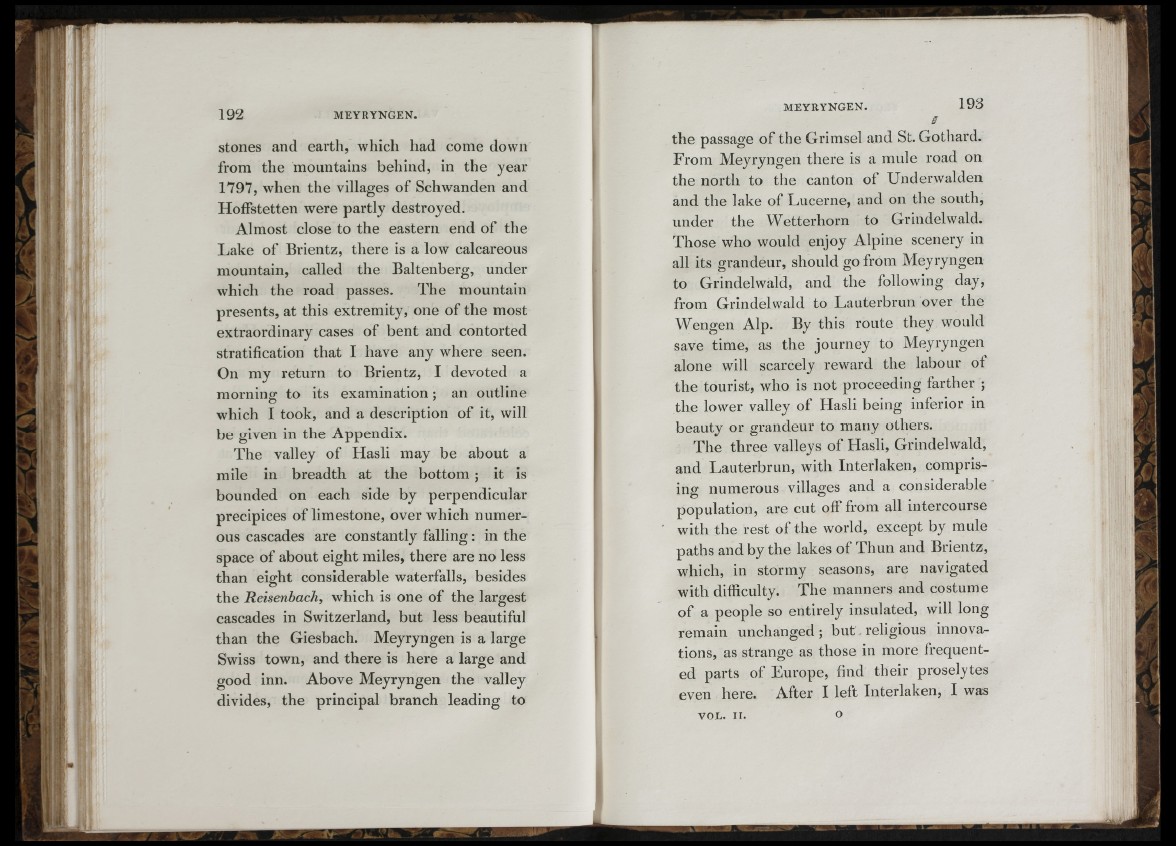
IV f£¡i y 'í
!'- - -iLi.
Íí,i.
,t... i
192 MEYRYNGEN.
stones and earth, which had come down
from the mountains behind, in the year
1797, when the villages of Schwanden and
Hoffstetten were partly destroyed.
Almost close to the eastern end of the
Lake of Brientz, there is a low calcareous
mountain, called the Baltenberg, under
which the road passes. The mountain
presents, at this extremity, one of the most
extraordinary cases of bent and contorted
stratification that I have any where seen.
On my return to Brientz, I devoted a
morning to its examination; an outline
which I took, and a description of it, will
be given in the Appendix.
The valley of Hasli may be about a
mile in breadth at the bottom ; it is
bounded on each side by perpendicular
precipices of limestone, over which numerous
cascades are constantly falling: in the
space of about eight miles, there are no less
than eight considerable waterfalls, besides
the Reisenbach, which is one of the largest
cascades in Switzerland, but less beautiful
than the Giesbach. Meyryngen is a large
Swiss town, and there is here a large and
good inn. Above Meyryngen the valley
divides, the principal branch leading to
MEYRYNGEN. 193
the passage of the Grimsel and St. Gotliard.
From Meyryngen there is a mule road on
the north to the canton of Underwalden
and the lake of Lucerne, and on the south,
under the Wetterhorn to Grindelwald.
Those who would enjoy Alpine scenery in
all its grandeur, should go from Meyryngen
to Grindelwald, and the following day,
from Grindelwald to Lauterbrun over the
Wengen Alp. By this route they would
save time, as the journey to Meyryngen
alone will scarcely reward the labour of
the tourist, who is not proceeding farther ;
the lower valley of Hasli being inferior in
beauty or grandeur to many others.
The three valleys of Hasli, Grindelwald,
and Lauterbrun, with Interlaken, comprising
numerous villages and a considerable
population, are cut off from all intercourse
with the rest of the world, except by mule
paths and by the lakes of Thun and Brientz,
which, in stormy seasons, are navigated
with difficulty. The mariners and costume
of a people so entirely insulated, will long
remain unchanged; b u t . religious innovations,
as strange as those in more frequented
parts of Europe, find their proselytes
even here. After I left Interlaken, I was
VOL. II.
i i